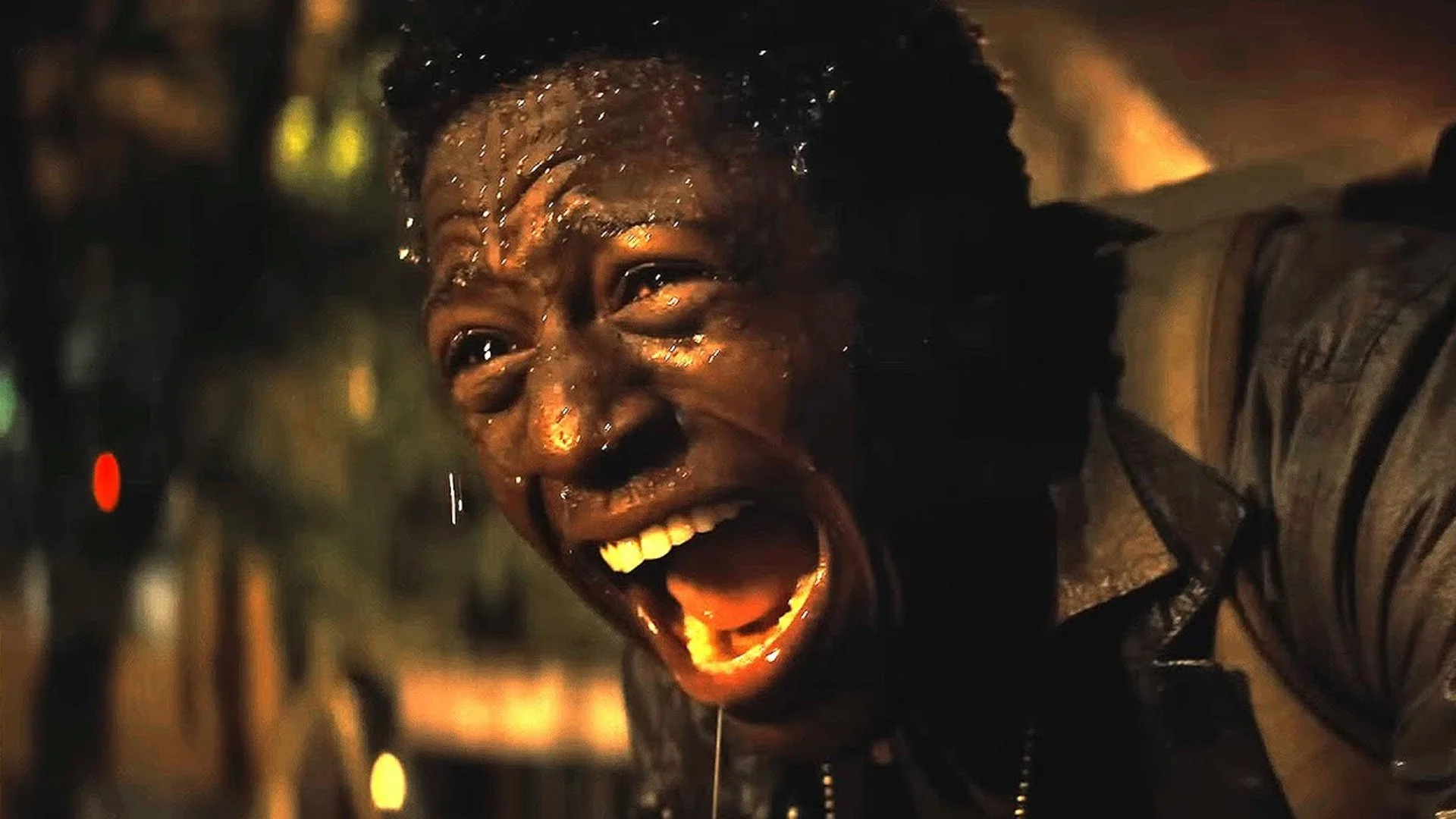THE LONG WALK Movie Has an Alternate Ending and Here's How It's Different From the Theatrical Release
This past Tuesday, Stephen King’s The Long Walk arrived on 4K UHD and Blu-ray, and this release includes an alternate ending for the movie.
I loved this movie and this alternate ending is actually really interesting at it reframes it’s two main characters, and adjusts the emotional landing offering a very different final note for Peter McVries... one that some viewers might prefer.
When I first heard that The Long Walk’s home release would include an alternate ending, I assumed we were getting something closer to the original novel. Maybe Ray Garraty actually winning the competition and slipping into a hollow, unstoppable march. But, that’s not what we get.
The alternate ending starts the same. Ray Garraty, played by Cooper Hoffman, and Peter McVries, brought to life by David Jonsson, are the last ones standing as rain pours on the crowds lining the road.
Just like in theaters, Peter slows, Ray hesitates, and soldiers shoot Ray twice in the chest before the Major, played by Mark Hamill, finishes the job with a pistol shot. Peter is crowned the winner.
The moment with the Major’s “big wish” also unfolds just as it did theatrically. Peter asks a nearby soldier for his carbine rifle, claiming he wants to hold onto it for posterity. The Major shrugs off the request with his signature detached attitude.
Peter lifts the rifle, looks the Major dead in the eyes and says, “This is for Ray,” setting up what seems like his follow-through on Ray’s earlier wish. But he doesn’t pull the trigger. Instead, he lowers the rifle, drops it, and walks away down the open road.
Fade to black. Then the screen fills with typed text that explaining what happened next.
"It was an early fall morning, months after Peter McVries won the Long Walk, when the Musketeers’ next of kin – Ginny Garraty, Clementine Olson, and Geraldine Baker – each heard a knock at their door
When they opened it, no one was there.
Instead, they each found a large envelope filled with more money than any of them had ever seen.
These mysterious envelopes kept arriving, month after month, for as long as they could remember.
And one day not long after the first envelopes arrived, Geraldine Baker received a small parcel.
Inside was a rosary and cross."
It’s still bleak, but it contains a thread of hope. A quiet aftermath where Peter uses his status, or at least his winnings, to honor the Musketeers rather than perpetuate more violence.
The core difference between the theatrical and the alternate ending is Peter’s choice once he’s holding that rifle. In theaters, Peter executes the Major and walks away. In the alternate cut, he chooses not to.
Both endings end with him heading into the distance alone, but only the alternate version imagines a future where he keeps his promise to his friends.
On my first viewing of the film back in theaters, part of me did wonder if Peter would refuse to kill. It felt more in line with his personality and his earlier declarations about staying compassionate. The text epilogue even suggests a thematic angle where he tries to repair the damage left behind.
But as thoughtful as that idea is, it ultimately goes against the emotional and psychological weight of The Long Walk. Peter choosing peace is too easy. Too clean. Too forgiving for someone who has lived through a state-sponsored nightmare.
The theatrical version asks the harder question. What happens when a gentle person is broken by a violent world. What does that person become. Peter kills not because he wants to, but because the world built around him has eliminated every other path. We aren’t meant to condemn him. We’re meant to understand him.
The alternate ending softens all of that.
There was a moment during post-production when the filmmakers had to choose which Long Walk ending would represent the story. The one that edges toward optimism, or the one that confronts the full brutality of the premise. They went with the darker, more meaningful version, and it was the right move.
The alternate version deepens the conversation around Peter, expands the universe just a bit, and lets us imagine a road the story almost traveled. But it’s clear why it wasn’t the final word.
